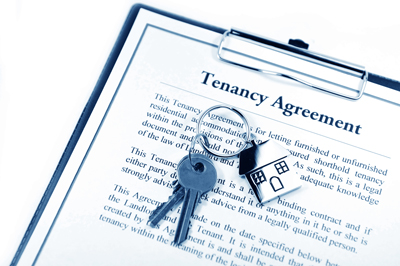Tenants Guide
[ezcol_4fifth]1. INTRODUCTION
Properties under management owned by a private landlord are, in the large majority of cases, either the landlord’s own private residence or have been purchased specifically as an investment for the rental market. Private landlords are generally seeking tenants for anything from a period of 6 months to several years, at the end of which they either return to occupy their home or place their property on the market. Investment landlords are hoping to achieve continuous tenanting of their properties, either with a succession of shorter tenancies or one long period of occupation.
[/ezcol_4fifth] [ezcol_1fifth_end]![]() Download letting fees[/ezcol_1fifth_end]
Download letting fees[/ezcol_1fifth_end]
In each case, the owner/landlord has instructed us to act on their behalf in their absence and to seek suitable tenants who will enjoy a mutually satisfactory occupancy of their property.
We would take this opportunity, therefore, of providing you with guidance notes relating to a proposed tenancy.
2. GETTING STARTED
Having viewed the property and arrived at a decision to make application to rent we require all applicants to complete a referencing form, which will then be processed to verify the information provided. There is a Holding Deposit required to commit tenants to go ahead with the property, this amount is equivalent to 1 weeks rent and is deducted from the first months rent.
The submission of the referencing application is no guarantee of tenancy. A final decision as to whether or not a tenancy can proceed will depend on responses received and will be made in consultation with the landlord. You will be required to provide personal details ranging from name and address to occupation and salary. You will be asked to provide financial, employer and character references as we can only agree to a tenancy subject to satisfactory replies from those referees. Our investigations will also include a search of the credit registers to establish your financial credibility and contacting your previous landlord / agent if you were previously a tenant. These are routine procedures taken to protect all parties.
Should you have County Court Judgements registered against you it may prove impossible to grant you a tenancy, unless satisfactory evidence of the clearance of debt is produced prior to the commencement of the tenancy.
Should you be unable to provide satisfactory references or credit checks you may still be offered a tenancy subject to a satisfactory guarantor being provided. The guarantor will need to provide satisfactory references and credit checks and will be expected to sign a form to guarantee your legal commitments in the tenancy, including payment of rent.
Given satisfactory replies to enquiries you will be offered the tenancy of the property, subject only to the terms of
the tenancy agreement, the payment of the deposit, the agreed advanced rent and the landlord’s agreement that the tenancy can proceed.
IDENTIFICATION. To support your application you will need to provide two forms of identification. These could be a birth certificate, full driving licence, full 10 year passport or new style national insurance card.
3. DEPOSITS AND RENT
A security deposit is required for all tenancies and is equal to five weeks rent. This deposit is due to be paid after the application has been processed and confirmed. The first months rent payment is required 24 hours prior to the tenancy commencing.
The rent and deposit may be paid by cash or debit card. The deposit acts as security for the performance of your obligations as a tenant under the tenancy agreement. This deposit will be returned to you at the end of the tenancy term without interest and subject to a deduction for damage or any other deductions that may be necessary to ompensate the landlord for any breach of the tenancy agreement.
The same security deposit is required from Housing Benefit Tenants. Should the property be covered by the Bond Board and you wish to apply for a Bond, we MUST have confirmation, in writing, that this has been agreed before the tenancy can commence.
If pets are to reside in any of the properties this must be notified to us as soon as possible; a further rental amount per pet will be required.
4. DEDUCTIONS FROM THE DEPOSIT
Should we need to replace items on the inventory or clean the house at the end of the tenancy, or if there has been a breach of the tenancy agreement, the return of your deposit will be delayed until all items are valued and replaced / cleaned. In any case we will aim to return your deposit within 14 working days.
Damage and breakage of the landlord’s fixtures, fittings and effects, lost inventory items etc, which occur during the period of the tenancy will incur deductions from your deposit. It is important, therefore, that you look after he property during the tenancy and take the utmost care to inspect the property and its fixtures and fittings at the outset. An inventory / statement of condition will be prepared prior to occupation and must be agreed by you at the outset.
This inventory / statement of condition will then form the basis of assessment of the property’s condition at the end of the tenancy term. Fair wear and tear will obviously be taken into consideration. Damages that occur will be charged to your account, as will invoices from contractors employed to undertake necessary repairs or replace any items.
5. PAYMENT OF UTILITIES/COUNCIL TAX
You are responsible for the payment of all utilities (gas, electricity etc) during the tenancy and for the payment of final bills.
You are required by law to inform the Council Tax Registrar of your change of address and pay the appropriate council tax.
6. LEGAL NOTICES & TENANCY AGREEMENT
Before you sign for a tenancy you will be given a copy of the tenancy agreement and any appropriate notices. Read these carefully and ask us questions if you are unsure of any point.
During the tenancy term you have the right to enjoy the property without interruption provided that you abide by the terms and conditions of the tenancy agreement. However, we, as agents for the landlord, have an obligation under our contract with the landlord, to inspect the property at regular intervals. We undertake to do this at approximately 3 monthly intervals, but at more frequent intervals if deemed necessary. We will write to you to make a mutually convenient arrangement prior to such an appointment.
7. VISITS
A visit to the premises is primarily undertaken to ensure that you, as the tenant, are in all respects observing the conditions of the tenancy agreement, though this is not the only consideration of management. It further allows the opportunity for you to discuss with us any problem that might be experienced relating to the property and for us to consider repairs/decorations etc before they become a major concern. If, however, you experience any problems of maintenance or repair please notify us immediately in order that appropriate action can be taken.
We have a number of trades people available to ensure that delays are minimised.
8. STAMP DUTY
For exceptionally high rental values, under the Stamp Act 1891, there may be a liability on the tenant to have the agreement stamped. In these cases, the tenant is advised to seek independent advice.
9. RENT
Rent should be paid to us by the due date each month. The method of payment is by standing order only, which should be set up 4 days in advance of the due date to allow for clearance through the banking system.
Where there are a number of occupiers sharing accommodation each person is jointly and severally liable to pay the rent as tenant and will pay the rent as a whole. Each tenant is jointly and severally responsible for the whole rent so that they are equally liable for the non-payment of rent by one of their co-tenants, should they fail to pay.
10. END OF TERM
Preparations should be made to hand the property back to us on the due date. Arrange readings of meters and ensure that the authorities have your forwarding address for the payment of all invoices raised. In no circumstances should you allow the authorities to disconnect supplies. The authorities should be informed that the managing agent will contact them when the property is handed over and provide details of the new account holder. This may be the owner or a new tenant.
Inventory items should be placed in their respective rooms to facilitate easy checking on handing over. Read carefully the inventory/statement of condition, clean curtains, carpets etc if required and generally prepare the property for that final inspection. Liaise with us and arrange a convenient time for handing over the premises.
We can advise of local trades people who will carry out all cleaning/preparation at a most competitive rate. If a pet has resided at the property any damage must be made good, the carpets are cleaned, dried and treated for fleas at the end of the tenancy. All smells and odours must be removed from the property at the end of the tenancy.
Once checking has been completed and deductions from your deposit agreed (if any), the deposit or balance of deposit will be returned to you.
11. SUMMARY
These notes are intended to provide only a summary to assist you to understand the obligations undertaken when you wish to rent a property from a private landlord. It is not the intention to give an authoritative interpretation of the law. We hope that you have found them useful.
Please do not hesitate to call, visit or e-mail us at any stage prior to or during your tenancy if you wish to clarify any details.

